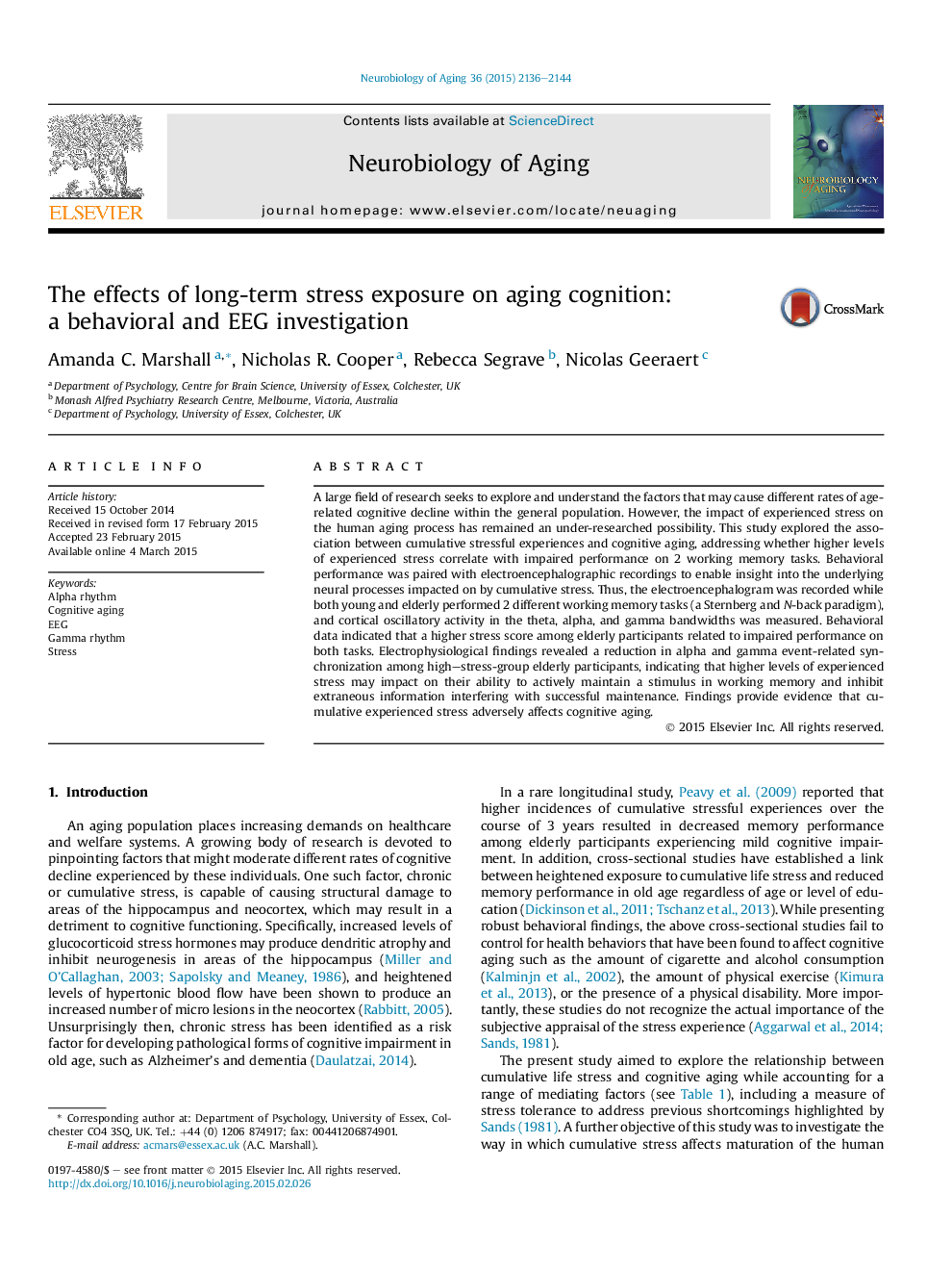| Article ID | Journal | Published Year | Pages | File Type |
|---|---|---|---|---|
| 6804255 | Neurobiology of Aging | 2015 | 9 Pages |
Abstract
A large field of research seeks to explore and understand the factors that may cause different rates of age-related cognitive decline within the general population. However, the impact of experienced stress on the human aging process has remained an under-researched possibility. This study explored the association between cumulative stressful experiences and cognitive aging, addressing whether higher levels of experienced stress correlate with impaired performance on 2 working memory tasks. Behavioral performance was paired with electroencephalographic recordings to enable insight into the underlying neural processes impacted on by cumulative stress. Thus, the electroencephalogram was recorded while both young and elderly performed 2 different working memory tasks (a Sternberg and N-back paradigm), and cortical oscillatory activity in the theta, alpha, and gamma bandwidths was measured. Behavioral data indicated that a higher stress score among elderly participants related to impaired performance on both tasks. Electrophysiological findings revealed a reduction in alpha and gamma event-related synchronization among high-stress-group elderly participants, indicating that higher levels of experienced stress may impact on their ability to actively maintain a stimulus in working memory and inhibit extraneous information interfering with successful maintenance. Findings provide evidence that cumulative experienced stress adversely affects cognitive aging.
Related Topics
Life Sciences
Biochemistry, Genetics and Molecular Biology
Ageing
Authors
Amanda C. Marshall, Nicholas R. Cooper, Rebecca Segrave, Nicolas Geeraert,
